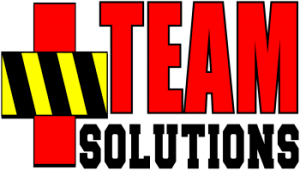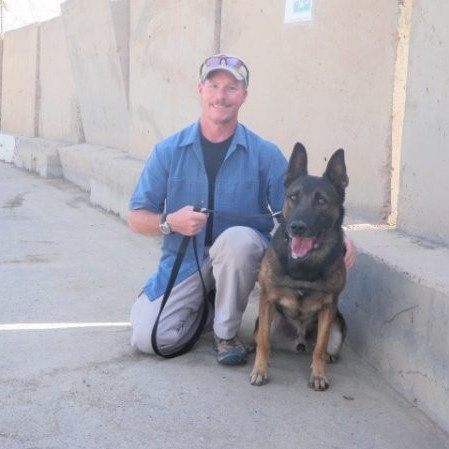An example where I relied on my own crisis leadership, a couple come to mind.
I think early on in my career, I originally joined the military in 1981. I became a military police officer.
I had just gotten out of basic training and I was assigned to my first duty station and my partner as I were doing an evening time routine patrol of one of the military housing areas and we had just entered the housing area.
We were coming driving through the housing area and we noticed that two vehicles were kind of driving erratic and pulled off the side of the street and one of the vehicles pulled alongside the other and fired a gunshot into the driver's window and we were probably, maybe 40, 50 yards from this when it happened.
We witnessed it.
So we didn't know at the time what was going on.
We heard the loud gunshot.
We didn't know it was a gunshot at the time. So the suspect vehicle ended up speeding away.
So we approached the driver that had been shot and my partner went around to the passenger's side. I went around to the driver's side and noticed that the driver had been shot through the left front shoulder and so I immediately applied a pressure dressing and we called for backup to seal off the housing area.
Called in backup.
They said there was only one way in and one way out of the housing area. So we sealed off the housing area, waited for backup and waited for the ambulance and once the backup had arrived and the ambulance had arrived and had taken over treatment of the wounded soldier, I was able to get a complete description of the vehicle and a license plate and once the backup units arrived, we started going door to door through the housing area looking for the suspect vehicle.
After about a two hour search, my partner and I noticed a garage door to one of the housing units that was only shut about halfway, so we looked inside the garage and we noticed that the vehicle matching the suspect's vehicle description was in the garage so we backed off, called in for backup.
They surrounded the house and sealed off the house and they were able to make the arrest of the suspect.
So I think that's part of... That kinda started my career in emergency management and response. And it's just applying what I had learned in basic training at the time.
And it just goes back to, when something happens whatever you do, your reactions have to be secondary.
You can't really think about it.
Just you have to be able to react and know what to do and when to do it. And so that's one incident comes to mind.
Another incident was in 2003, in February of 2003, I was with the Texas Task Force 1 FEMA USAR team, working a FEMA dog, and I was also part of a local search and rescue team, Search One Rescue in the Dallas area.
In February 2003, the shuttle crashed and broke apart over North Texas and so we were called, the Texas Task Force 1 along with multiple teams throughout the state of Texas and nationally, probably thousands of responders were asked to go to West, or excuse me, to East Texas to look for the shuttle that had broken apart.
But also, more importantly, they were looking for the remains of the astronaut.
We deployed to East Texas for 10 days as part of the task force and I was tasked as part of a response, we call it the Black Hawk Brigade, to East Texas.
We were assigned to... It was three or four of the dogs that were responded or tasked to look for the remains. And basically what we did, is we were tasked to Black Hawks and we'd go up in the air and the, the FBI and the local aviation assets would go up and mark with GPS where they saw buzzards circling and so we'd deploy in the Black Hawks.
We set down the GPS coordinates with the dogs and we'd fan out in probably about a half a mile to a one mile radius with the HRD dogs looking for the remains of the astronauts but also looking for parts of the shuttle because there was certain things that they were interested in recovering besides the astronauts. And so I was tasked to a small team of three or four dogs over these 10 days and some of my team members.
This was their first basic really massive type search and so I think the crisis leadership was just helping fellow team members that hadn't really experienced this kinda search and what to do and what not to do and basically how to handle the day to day search, not only from a tactical operations aspect, but also just on a daily basis.
And I remember our task force leader was retired military and so one of the things that he was stickle on is clean uniforms. And I joked with my team members about... We were working 12 or 14 hour days and I remember talking to my team member when we got to the hotel.
We were tried, we were wet, we were muddy.
And I remember telling him, I said, okay, first thing we're gonna do before we go to bed is we're gonna get our uniform ready for the next day, make sure we've got a clean uniform and we're gonna polish our boots.
We were way knee deep in mud every day and as dumb as it seemed is that appearance because this was a nationally televised events.
That professional image and appearance was critical.
So everyday when we showed up to search besides knowing what tactically and operationally to do, that professional image of wearing a clean uniform with shined boots because that image is important, not only to the media and to our task force but to how other people see you and view you as a professional.
If you come in looking like a dirt bag and you're wearing the same uniform every day, even though you're dirt tired, at the end of the day, you don't get a second chance to make that first impression.
And so I think that's just the very minute but it's the little things, I think often that make the biggest impression. Not necessarily the big actions that you do.
So I think just imparting the importance of that and it goes back to my military training. That's what I was ingrained upon me in military is that image and it's... If you don't pay attention to the little details, you're not gonna pay attention to the big details.


